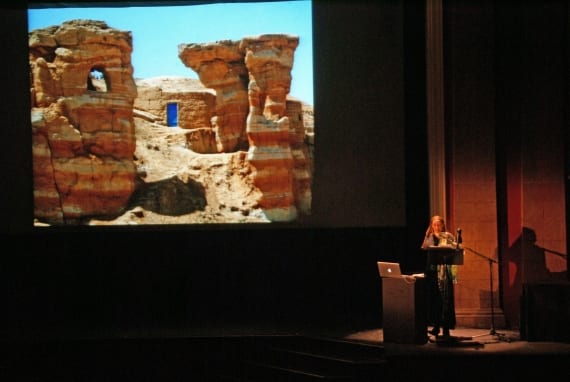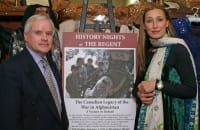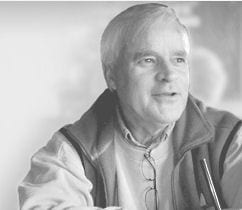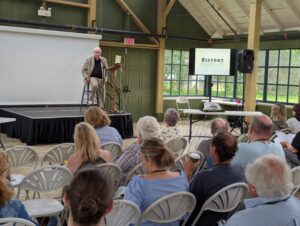The Great Puzzle of Afghanistan
Afghan-Canadian author and Filmmaker Nelofer Pazira lectures at The Regent

Toronto actress, author, film director, and journalist Nelofer Pazira appeared on stage at The Regent Theatre on Monday, February 4th 2013 as another of the History Nights At The Regent lectures. History Lives Here Inc. sponsors this series of monthly winter history lectures in partnership with the Black Prince Winery, The Merrill Inn, and The Regent Theatre.
Pazira fled Afghanistan with her family in the 1980s as the brutal reign of the Taliban grew. After a harrowing 10-day journey on foot to Pakistan, a story told in her book, A Bed of Red Flowers: In Search of my Afghanistan, Nelofer and her family settled in New Brunswick. She learned English and later completed degrees in journalism from Carleton University and in anthropology, sociology and religion from Concordia University. And she began a career documenting the painful process of her country’s struggles.
Afghanistan is one of the world’s poorest countries and it’s history has been shaped by tribal warlords and invading armies dating back to Alexander The Great. It is within this context that western armies entered the country in 2001 to begin a war to uproot terrorists, track down the world’s most wanted man, Osama Bin Laden, and to bring security so the nation’s fragile government could bring democracy, a civil society and services to its citizens. Canada was part of this effort sending 2,800 troops and contributing millions in aid dollars.
It was, says Pazira, a mission full of good intentions. But however well-armed and trained the almost 150,000 soldiers from contributing nations were, they did not come with much understanding of the country, its history, the culture, and contemporary circumstances that remain the reality of Afghanistan. Widespread government corruption, the shifting alliances of competing warlords and their armies, weak Afghan police and army forces, and a tenacious campaign of intimidation, suicide-bombers, and attacks by a determined and elusive enemy on western army convoys using cheaply-made improvised explosive devices (IEDs), all conspired against the world’s intervention.
The Afghan people, wary of the uncertain commitment of the West, could never align themselves totally with foreigners and a certain death upon their withdrawal. The enormous expense of the war in lives and dollars (The U.S. military alone spent eight billion/month), and its growing unpopularity among voters lead NATO nations to scale down their involvement and to leave the country. Canadian troops left in 2011 although some 900 soldiers remain training Afghan defence forces. U.S.forces will leave the country in 2014.
It is difficult to find measureable successes within the Canadian effort, says Pazira. The 50 schools Canada built have never actually been used. Without constant security, it is simply too dangerous for teachers and students – especially women and girls – to utilize the facilities. Canadian aid projects to improve roads, develop irrigation projects, and to strengthen the Afghan government’s capacity to provide much-needed services to its citizens have not had a enduring legacy. And many Afghan civilians were the victims of friendly fire incidents, aerial attacks, and incidents where they were simply innocent people in the wrong place at the wrong time.
As we undertake other military missions in other parts of the world, Canada, says Pazira, needs to carefully consider the many complexities of other societies and their long history of conflict. As well, she suggests, we need to develop alternative approaches to military interventions which cannot be sustained, contribute to further loss of life on all sides, and are often driven by national agendas which do not always align with the best interests of the citizens of countries like Afghanistan.
Afghanistan remains a great puzzle. Should we have intervened? What is the legacy of this great effort? What do we do when we must decide again to intervene in another of the world’s hot spots? History, says Pazira, has not yet revealed the answer.
The next History Night at The Regent will be on March 4th 2013 at 7 pm at The Regent. It will feature Professor Patrice Dutil of Ryerson University and Past Chair of the Champlain Society of Canada discussing the epic journeys of French explorer Samuel de Champlain through the Quinte area.
For tickets, contact The Regent Theatre
613 – 476 – 8416 www.TheRegentTheatre.org








